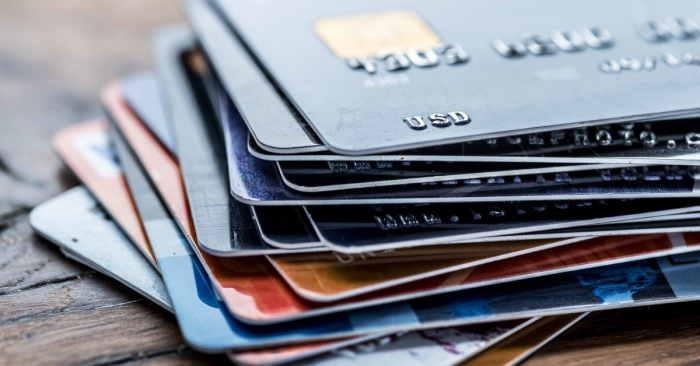
Choosing the right low-interest credit card can be beneficial for your financial health. Whether you're looking to save on interest rates or manage your debt better, a low-interest credit card can provide significant advantages.
For middle-income earners and savvy budgeters, knowing how to pick the right card is important. This guide aims to help you make an informed decision so you can enjoy financial peace of mind. Let's get a clear understanding of how to choose the right low-interest credit card for your needs.
Understanding Low-Interest Credit Cards
Low-interest credit cards offer reduced rates compared to standard credit cards. These cards are ideal for people who carry a balance from month to month. Knowing why you need a low-interest card is the first step in finding the right one.
Are you looking to reduce monthly payments? Or perhaps you want to consolidate debt? Understanding your goals will guide you toward the best card for you. Credit cards with low interest typically have lower annual percentage rates (APRs).
This means less money spent on interest charges over time. However, these cards often require a good to excellent credit score. If your credit is less than stellar, you may still qualify, but the interest rate might be slightly higher.
Comparing APRs
One factor to consider when choosing the right low-interest credit card is the APR. The APR represents the annual cost of borrowing, which includes fees. Different cards offer varying APRs, and you’ll need to compare these rates to choose the option that best fits your needs. A slight difference in APR can have a significant impact on your finances over time.
When comparing cards, look for those with the lowest APRs available. Some cards offer introductory rates that are extremely low but increase after a certain period. Make sure to read the fine print and understand what the APR will be after the introductory period ends.
Introductory APR offers can be enticing, but what happens after the promotional period matters most. Always check the regular APR to avoid surprises. Additionally, some cards adjust APRs based on your creditworthiness, so maintaining a good credit score can be beneficial.
Evaluating Fees and Charges
Fees can add up quickly, making it necessary to examine all associated costs. Some low-interest credit cards come with annual fees, which can sometimes be offset by lower interest rates.
Transaction fees, such as balance transfer fees and cash advance fees, are other costs to consider. Balance transfer fees usually range from 3% to 5% of the amount transferred. If you're planning to transfer a balance, make sure the low interest rate outweighs the cost of the fee.
Foreign transaction fees are another consideration for frequent travelers. Some cards charge up to 3% for transactions made abroad. If you travel often, look for a card that waives these fees to save money.
Assessing Rewards Programs
Rewards programs can add significant value to a low-interest credit card. Some cards offer cash back, points, or travel miles. While the primary focus is on low interest, rewards can be an added bonus. Look for a card that offers rewards aligned with your spending habits.
Cash back rewards are straightforward and easy to understand. Many cards offer one to two percent cash back on purchases, which can add up over time. Points and miles can be more complex but offer great value if used correctly. Make sure you understand how to redeem rewards and any restrictions involved.
Credit Score Requirements
Most cards require a good to excellent credit score, typically 670 or higher. Knowing your credit score before applying can help set realistic expectations. If your credit score falls below the desired range, take steps to improve it.
Paying down existing debt, making timely payments, and keeping credit card balances low can boost your score. Some cards offer pre-qualification checks that don't affect your credit score, which allows you to gauge your chances of approval.
Improving your credit score takes time, but the benefits are worth the effort. A higher credit score not only increases your chances of approval but also qualifies you for better interest rates. Patience and persistence pay off in the long run.
Matching Card Benefits to Your Needs
Different low-interest credit cards offer various benefits, so it can be helpful to match them to your needs. If you value travel perks, look for a card that offers travel insurance or airport lounge access. For those who prefer cash back, find a card with generous cash back rewards.
Some cards offer additional benefits like extended warranties, purchase protection, and rental car insurance. These perks can provide added value and peace of mind. Evaluate what benefits are most important to you and choose a card that aligns with your lifestyle.
Applying for the Card
You can complete most applications online in a matter of minutes. Have your personal information, income details, and employment history ready. During the application process, a card company will ask you to consent to a credit check.
This may result in a temporary dip in your credit score. Make sure you're comfortable with this and only apply for one card at a time to minimize the impact. After you submit your application, you'll typically get a decision within a few minutes.
If approved, you'll receive your card in the mail within seven to ten business days. Activate your card and start enjoying the benefits of low interest rates. For residents in DC, VA, and MD, Democracy Federal Credit Union offers low-interest credit card options with a variety of specialty features and rewards. Their commitment to providing competitive rates and excellent service makes them a top choice for many.
Monitoring Your Card Usage
Once you have your low-interest credit card, be sure to monitor your usage. Keep track of your spending, payments, and interest charges. Set up alerts for payment due dates to avoid late fees and potential interest rate increases.
Using budgeting tools can help you manage your expenses and ensure you're not overspending. Responsible usage is key to maximizing the benefits of a low-interest credit card.
Choosing the right low-interest credit card can significantly improve your financial health. Take the next step in your financial journey by finding the perfect low-interest credit card today. Use the insights from this guide to make a choice that brings you closer to financial freedom.
Democracy Federal Credit Union offers credit cards that provide numerous perks. You can even transfer balances from other financial institutions. Contact us to find out how our credit cards can help you financially today.

